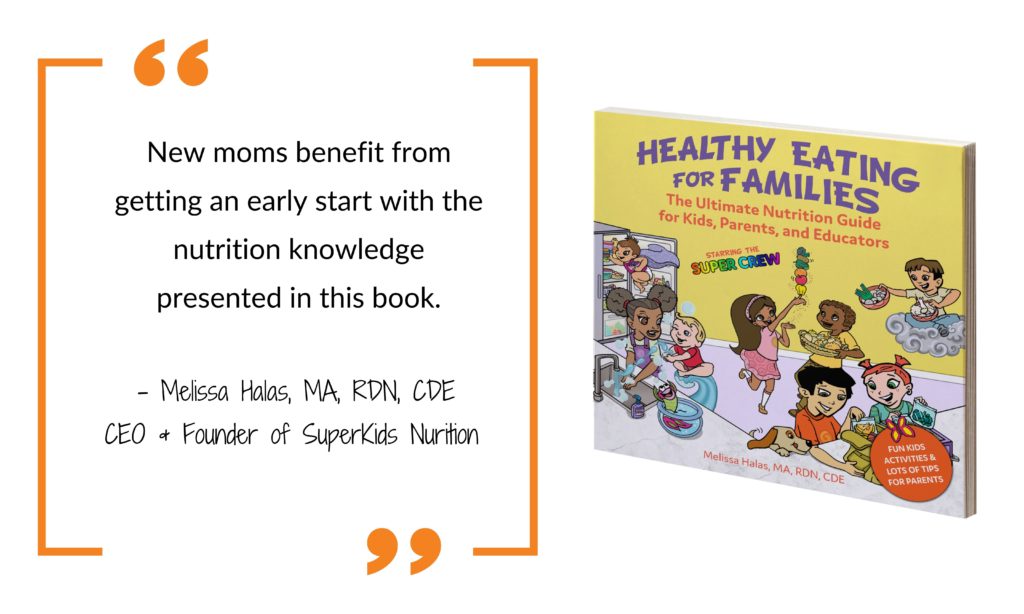
Check out these must-know tips on caffeine and pregnancy to maximize your baby’s long-term health.
Confused about the caffeine and pregnancy conundrum? One day, the news may highlight a study claiming that it’s safe. The next day, a new study links caffeine consumption to miscarriages. Now, caffeine may possibly contribute to long-term behavioral issues and lower birth weight. So, what’s an expectant woman to do?
What does the research show about caffeine and pregnancy?
We’ve read the research. According to the American College of Obstetricians and Gynecologists, pregnant women can safely consume up to 200mg of caffeine per day while keeping the risk of a preterm birth or miscarriage to a minimum. This caffeine quantity equates to approximately 12oz, depending on the brand. (1) However, risks outside of preterm birth and miscarriage are being examined.
How does caffeine affect the fetus?
While you may enjoy your morning cup a “latte,” does having caffeine while pregnant make you fear for your fetus? A retrospective study conducted on 9000 children aged 9 to 10 years old who were exposed to caffeine in the womb on a weekly basis found a correlation to developmental alterations, such as hyperactivity and attention difficulties. (1) While other factors can contribute to similar behavioral issues, caffeine intake while pregnant can increase its likelihood in vulnerable populations. A separate study found that women who consumed approximately 50 mg of caffeine per day throughout pregnancy gave birth to children with lower birth weight than those who abstained from caffeine while pregnant. In fact, this minimal amount of caffeine resulted in an average weight difference of 2.3 ounces. (2) Therefore, even a fraction of the amount deemed safe for consumption can negatively impact the baby’s growth and development.
But, if you are a coffee enthusiast, it’s advised not to call it quits cold turkey. Instead, gradually transition to a decaf option, or lessen your consumption, to minimize withdrawal symptoms that can cause unwanted stress on the pregnancy. (1) The last thing a pregnant woman needs are additional anxiety, irritability, and headaches!
The bottom line of this newfound research is to consume as little caffeine as possible while pregnant. (1) To assess your daily intake, check out this handy caffeine calculator!
Can women drink decaf coffee during their pregnancy?
Compared to caffeine drinkers, substituting your favorite cup of joe for a decaf alternative shows a reduced likelihood of preterm birth or miscarriage. (3) Keep in mind that decaf coffee still contains small amounts of caffeine—approximately 0 to 16mg per 16oz serving, depending on the brand or brew. (4) While this minimal quantity is safe for consumption, it’s worth noting for women who feel more comfortable completely omitting caffeine while pregnant.
What does caffeine do?
Caffeine acts as a stimulant that’s common in many foods and beverages. While it may boost mood and instill a “can-do” attitude, higher doses can lead to increased anxiety, sleeplessness, blood pressure, and heart rate. (5) Most notably, caffeine can cross the placenta and reach the baby, it does not cause a decrease in uterine blood flow. (1)

Where is caffeine found?
You may be drinking more caffeine than you think! This stimulant is also present in tea, colas, matcha, energy drinks, chocolate, and some coffee- and chocolate-flavored foods and beverages. Check out the chart below to see where your favorite caffeine-filled food or beverage ranks!
Caffeine in Food and Drinks
| Food or Beverage | Amount | Caffeine Content |
| Brewed Coffee, generic | 8 oz. | 75-165 mg |
| Starbucks (Dark, Blonde) | 16 oz. (Grande) | 260 mg, 360 mg |
| Dunkin’ Donuts | 14 oz. (Med) | 164 mg |
| Instant Coffee, generic | 8 oz. (1 tsp.) | 60-85 mg |
| Latte or cappuccino, Starbucks | 12 oz. (tall) | 75 mg |
| Latte or cappuccino, Starbucks | 16 oz. | 150 mg |
| Espresso, generic, Starbucks | 1 oz. (1 shot) | 45-75 mg |
| Cold Brew, generic | 12 oz. | 150 mg |
| Decaffeinated Coffee, generic | 6 oz. | 2 mg |
| Brewed tea, Black | 8 oz. | 40-70 mg |
| Green | 8 oz. | 25-40 mg |
| Decaffeinated black | 8 oz. | 2 mg |
| Instant Tea, powder | 8 oz. (3 tsp.) | 8 mg |
| Matcha Powder | 1-3 g | 20-60 mg |
| Yerba Matte | 3 g | 40 mg |
| Starbucks Tazo Chai Tea Latte | 16 oz. | 70 mg |
| Nestea | 12 oz. | 12 mg |
| Snapple | 16 oz. | 22 mg |
| Lipton Brisk Iced Tea | 12 oz. | 8 mg |
| Coke, Pepsi | 12 oz. | 30-60 mg |
| 7-Up, Sierra Mist, Sprite | 12 oz. | 0 mg |
| Mountain Dew | 12 oz. | 54 mg |
| Chocolate, Dark | 1 oz. | 31 mg |
| Milk | 1 oz. | 1-15 mg |
| White | 1 oz. | 0 mg |
| Chocolate coated coffee beans | 28 pieces | 336 mg |
| Coffee ice cream/frozen yogurt | 8 oz. | 50-60 mg |
| Hot Cocoa | 8 oz. | 3-32 mg |
| Chocolate Milk | 8 oz. | 2-7 mg |
For the complete chart, click here!
Remember, there is a great deal of varying caffeine content depending on the brand and brewing method. But, in general, brewed coffee contains the highest amount of caffeine per serving. Just one 16-ounce (oz) coffee from Starbucks can put a pregnant woman over the recommended safety limit by up to 160 mg!
How can I limit my intake of caffeine?
Ideally, one would ween off caffeine or decrease their intake before getting pregnant. That being said, there are “oopsie” instances that don’t allow for such forward planning. Keep these caffeine-cutting tips in mind if you are pregnant or looking to get pregnant.
- Sub up to one cup of green tea for your daily java, and you’ll save between 70 and 300 mg of caffeine. However, keep green tea to one daily cup since higher intake may decrease folate absorption—an essential vitamin for your growing baby. Don’t forget to also take your prenatal vitamin or additional folate as prescribed by your physician.
- If you think pop is soda-lightful and occasionally indulge, opt for 7-up, Sprite, or Sierra Mist instead of highly caffeinated cola-beverages or Mountain Dew.
- If you are a chocoholic, opt for white chocolate instead of dark or milk chocolates.
- Savor a scoop of vanilla bean ice cream over chocolate or coffee flavors.
- Skip the energy drinks and get an all-natural recharge by going for a walk outdoors, doing some stretches, listening to music, or the seemingly most obvious option…sleeping! Check out why sleep is important!!
Want to learn more about eating right during pregnancy beyond caffeine and pregnancy? Find out whether it is safe to consume fish, avoiding high-risk foods, and how to manage morning sickness.












